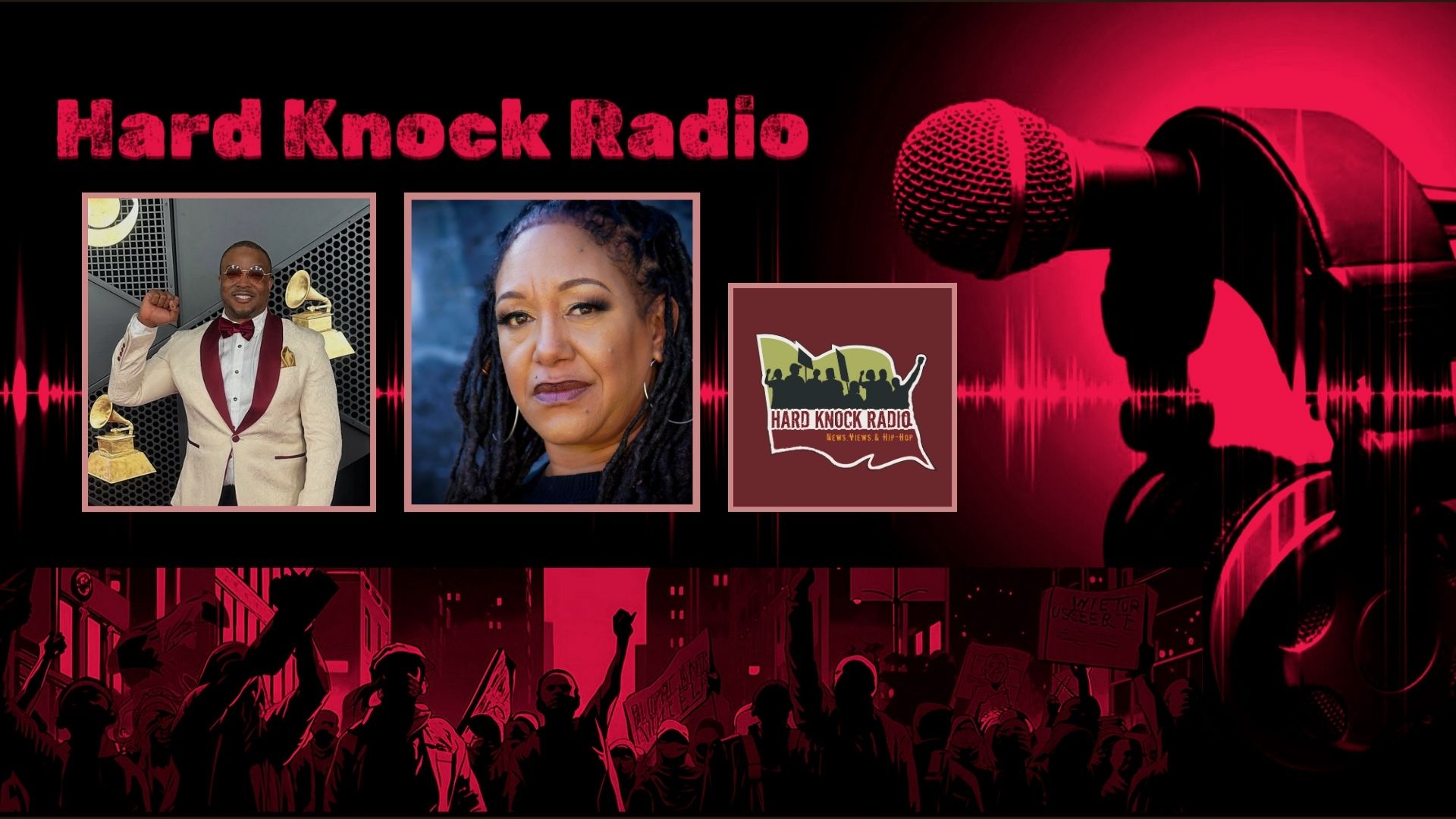Hip Hop, Activism, and the State of Culture
In a recent episode of Hard Knock Radio, host Davey D engaged in two powerful conversations—one with Chuck Creekmur, founder of AllHipHop.com, discussing the LA wildfires, the Grammys, and the evolution of hip hop, and the other with Cat Brooks, co-founder of Anti-Police Terror Project (APTP), who shared her insights on movement-building, the challenges of activism, and the need for political education. Together, these discussions highlighted the ongoing cultural, political, and social struggles impacting Black communities and beyond.
The Devastation in Altadena
Creekmur, who was in town for the Grammys, visited Altadena, one of the areas severely impacted by the fires. He described the scene as “total devastation,” emphasizing the emotional toll it had on the community. “Honestly, I was almost brought to tears by what I saw and what I heard from firsthand accounts,” he said. Many residents lost everything, including prominent musicians like Madlib and Broadway, highlighting how deeply the tragedy affected the creative community.
The Grammys: Controversy and Celebration
The conversation shifted to the Grammys, where Beyonce’s historic win for her country album sparked intense backlash. “You would think somebody shot somebody’s mom with the racial vitriol that’s out there,” Davey D remarked. Creekmur noted the double standard, pointing out that white artists have often won in Black-dominated categories without similar outrage. “Inside the arena, it was all love for Beyonce. But outside, it was a different story,” he said.
Kendrick Lamar’s sweep was another major talking point. With multiple wins, Kendrick reaffirmed his dominance in the culture. “He highlighted the differences between hip hop and rap, between an MC and a rapper,” Creekmur stated. He also touched on the ongoing lawsuit involving Kendrick’s label, suggesting that the industry dynamics are shifting rapidly.
Quincy Jones Tribute and Hip Hop’s Future
Quincy Jones received a heartfelt tribute at the Grammys, but Creekmur felt it could have been longer. “You could literally go on for hours and hours if you’re doing a tribute to Quincy,” he said, emphasizing the producer’s unparalleled influence.
When asked whether anyone in today’s music scene could reach Quincy Jones’ level, Creekmur’s response was immediate: “No.” He lamented the current state of the industry, where musicianship is often undervalued. “It’s about being stingy and cheap. It’s about screwing the artists over,” he said, underscoring the need for structural change in the music business.
Cat Brooks on Movement Building and Organizing for Liberation
Division on the Left: A Growing Concern
Brooks did not hold back when discussing the fractures within activist circles. “It’s not just a perception that we’re divided. We are divided,” she asserted. From competition for grants to strategic disagreements, she noted how infighting has weakened movements. “We eat each other when we don’t agree with people’s strategies.”
She pointed to the monetization of activism as a key problem, with many seeking to become the next big name rather than focusing on collective liberation. “People are trying to figure out how they can be the next Huey P. Newton or Martin Luther King. But the thing about dead revolutionaries is—they’re dead,” she said, highlighting the sacrifices that come with the struggle.
The Importance of Training and Political Education
Brooks stressed the necessity of structured political education for activists. “If you haven’t been trained, you’re not an organizer. You’re an activist or an advocate, but you’re not an organizer,” she declared. She warned that the right wing has continued to train its base while many on the left have become complacent. “They trained as organizers, too, and they are kicking our backside right now.”
The Financial Realities of Organizing
A major point of discussion was the shift in expectations among young activists. “They come in saying, ‘I’m not knocking on a door unless I make six figures,’” Brooks said. While she supports fair pay for organizers, she questioned whether financial incentives have become a priority over the mission. “If the money goes away, will you still do the work? If the answer is no, you should go do something else.”
Best Practices for Movement Building
Brooks outlined three key principles for strengthening movements:
- Stop Eating Each Other – Disagreements should not be aired publicly, giving the state opportunities to infiltrate and divide. “We do not lift up for the state to see the cracks in our movement.”
- Study and Train – Activists must educate themselves and prepare physically and intellectually. “You talk big mess, but if someone busted through your door right now, you couldn’t run half a block.”
- Join or Start an Organization – Being part of a structured group provides accountability and long-term strategy. “If you can’t find alignment with an organization, start one.”
The Role of Art in the Struggle
In addition to her activism, Brooks continues to work in theater. Her upcoming play, Driving the Girls, explores the intersection of Blackness and sex work, aiming to humanize marginalized women. “These women had dreams. They wanted to get married. They were parents,” she said, emphasizing the importance of storytelling in movement work.
Moving Forward: The Road Ahead for Culture and Activism
Both interviews offered powerful insights into the state of music, activism, and Black culture. Creekmur’s reflections on the Grammys and hip hop’s evolution showcased the ongoing battles for artistic integrity, while Brooks’ critique of movement-building laid bare the internal struggles within activism.
As Davey D continues to bring these critical conversations to the airwaves, one thing remains clear: the fight for justice—whether through music or direct action—requires strategy, unity, and a deep commitment to the cause.


Leave a Reply